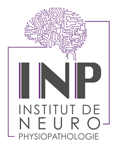1693P Incidence of NTRK genes fusion in adult brain tumours: A prospective cohort of 140 patients with cerebral gliomas and brain metastases
Résumé
Background: ImmTAC molecules are TCR-anti-CD3 bispecific fusion proteins that can redirect polyclonal T cell activation against cancer cells. Tebentafusp, a gp100-directed ImmTAC, has demonstrated survival benefit in metastatic uveal melanoma 1. Here, patient-derived tumour organoids (TO) 2 and 3-dimensional multicellular melanospheres were evaluated as tumour models to study ImmTAC activity. Methods: 3D melanospheres were generated by low adherence culture of melanoma cell lines (MEL202, MEL624, 92.1, MP-41, A375, IGR-1, Mewo) and their melanin synthesis genes were quantified by qPCR. The capacity of ImmTAC to redirect T cells against melanospheres was assessed in vitro using IFNg and granzyme B Elispots in the presence or absence of commercially sourced IFNa2 or IFNb. Patient derived TO were generated by Tempus 2 and screened for HLA-A*02:01 and antigen positivity. ImmTAC-mediated killing of relevant TO was assessed by 3D high content imaging. Results: Melanospheres formed from all melanoma cell lines tested, and upregulated melanin synthesis genes including PMEL, MITF, and MLANA. This translated into visible but heterogenous melanin expression. ImmTAC were capable of redirecting T cells against cells from melanospheres to produce IFNg (EC 50 23 pM-4.8 nM) and granzyme B (EC 50 130 pM-1.4 nM). Treatment of 3D cultures with IFNa2 or IFNb for 48 hours augmented ImmTAC-mediated redirection of IFNg secretion by a mean of 4.42-fold. To further assess ImmTAC-mediated T cell redirection against more complex in vitro cultures, TO were derived from patient tumours and co-cultured with PBMC for 96 hours. In these settings, clinically relevant doses of ImmTAC redirected T cells to induce cell lysis of antigen positive TO (EC 50 29.3 pM). Conclusions: 3D melanospheres and TO may provide useful models to study tumour biology, heterogeneity, and ImmTAC activity. ImmTAC were capable of redirecting T cells against these in vitro tumour models, which will allow for better understanding of mechanism of action. 1.
Domaines
Cancer
Fichier principal
 5053.pdf (247.42 Ko)
Télécharger le fichier
PIIS0923753422036225.pdf (90.68 Ko)
Télécharger le fichier
5053.pdf (247.42 Ko)
Télécharger le fichier
PIIS0923753422036225.pdf (90.68 Ko)
Télécharger le fichier
| Origine | Fichiers produits par l'(les) auteur(s) |
|---|
